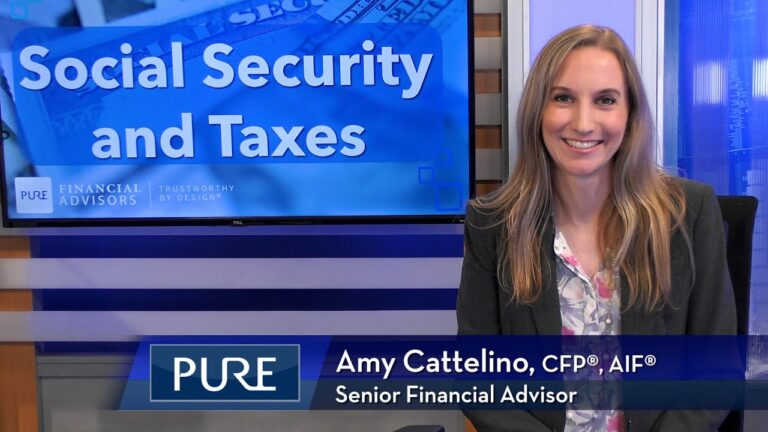Traveling in retirement while being on a budget and on a fixed income can be challenging, so planning is absolutely key. In this video, Pure Financial Advisors’ Senior Financial Planner David Cook, CFP® offers nine retirement travel tips to make the most of your budget and your time.
Transcript:
Now retirement is the ideal time to set off on long-awaited adventures, but retirement while being on a budget, and on a fixed income, and traveling, can be a little bit challenging. So planning is absolutely key.
So one of the things you want to do is assess your travel readiness. You really want to know kind of are there any health issues, any health concerns? One of the things you want to make sure you at least consider is travel insurance. Travel insurance is very useful for seniors. It could be more costly, but they’re actually more apt to use it. Whether that is you need to reschedule for a medical situation or just understanding that your Medicare likely is not going to cover you for health insurance needs while you’re overseas. So it’s important to understand your medical insurance and what it does cover while you’re overseas. Also if you’re on any kind of medications you want to make sure you ask your doctor what are the generic names for those medications. A lot of times when you’re overseas, the names of those drugs will be different. And you want to bring those on a carry-on. You don’t want to put those in luggage somewhere that you may not be able to get access to.
And also think about keeping a digital copy of these important documents possibly somewhere in the cloud, like say, passports or maybe your itinerary or maybe even you do have a health insurance that gives you some coverage overseas. Make sure you get your powers of attorney and everything else updated and have those documents someplace where you can digitally store those where you’ve got Internet access. That’s an important consideration before you leave.
Now, one of the things that you have as a retiree is time. That gives you a tremendous advantage for flexibility and also for length of stay. So it’s good to be flexible on your dates. You don’t want to travel on the most expensive times to go, the peak seasons. And also you want to maybe avoid traveling on the weekends. Pick your days wisely. If there is a good discount that pops up and if you’ve got flexibility on your schedule, take your time, be able to stretch your legs out, really get to know a city – that usually brings down your overall cost per day. It also opens up some advantages that maybe you don’t have, like let’s say you want to stay in a VRBO but they require at least a two-week stay. Maybe even swap a home is an option for you – if you go to a destination, you can swap a home with somebody else who wants to come to where you’re at. These are all things that normally are hard to do while you’re working, but when you’re retired you’ve got time that gives you that advantage.
The savvy consumer will also utilize credit cards that give really attractive rewards. Now, you have to have some financial discipline. So if you can pay them off within a month or two, that’s going to be a tremendous advantage. Companies like Chase with the Sapphire card or American Express, they can offer some pretty substantial discounts if you like to travel likely more than once per year.
Maybe you don’t like to fly overseas but your goal is more are RVing or camping. Maybe you just want to rent an RV for a couple of weeks and cross the country and go to some of our national parks. Sometimes they can be really packed, but again, you’ve got the advantage of time.
Understand the scheduling difficulties that may be and be able to navigate that yourself. You can do RV and camping in other countries as well. I’ve had clients and even relatives that have done this sort of travel in places like New Zealand and Norway, and actually can be very affordable if it’s well planned out. Maybe even consider lesser-known and less expensive destinations like South America or Central America or some areas in Asia.
Packing light is especially important for seniors when you’re getting on and off the plane when you’re going to the airport, that’s going to be an easy transition for you. And remember airports do offer wheelchairs for those who ask. So if you want some help or some assistance getting to the gates if it’s a large airport, that can come in really handy. And the TSA has actually changed some rules for those travelers that are 75 and older. They do not require you to remove your shoes or to remove a light jacket.
So those are just a few tips for traveling in retirement. If you need more help or assistance on how travel can fit into your retirement plan, contact Pure Financial.
Click here for more information on the lighter side of retirement.












